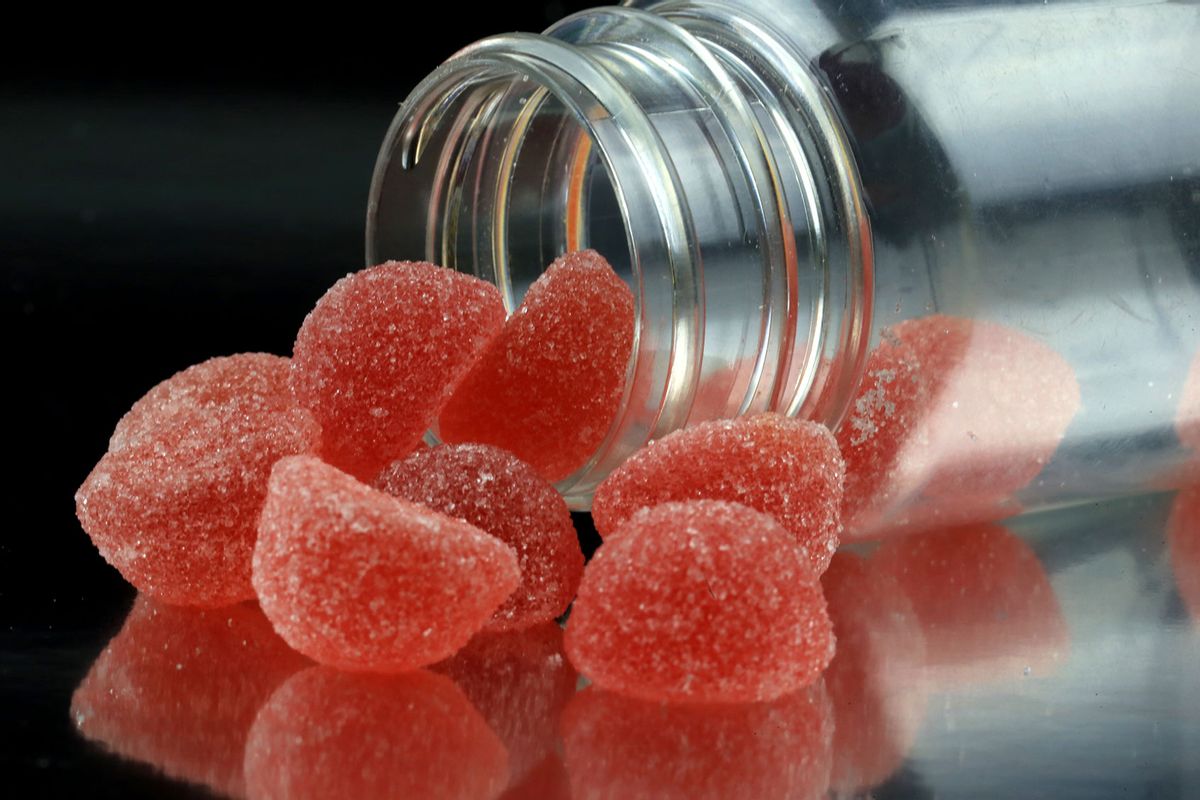TikTok, the addicting short-form video app akin to the dearly departed Vine, has its pros and cons. Pros: It's home to a slew of entertaining content, from dance trends and mini skits to silly impersonations and laugh-out-loud gags. Cons: It's also home to plenty of toxic content, especially in the realm of diet and nutrition.
If there's one thing to keep in mind about social media, it's that not everyone is qualified to give good health advice. It's a known fact that thousands and millions of likes aren't a measure of credibility. And yet, users still deem it as so, thus allowing swarms of so-called "health and fitness influencers" to profit off of harmful misinformation.
The latest trend on health TikTok is homemade gelatin gummies, which greatly resemble the gelatinized cockroach protein bars eaten by the Tailies in "Snowpiercer." Thankfully, these gummies don't call for dead cockroaches. They are instead made from a mixture of bovine gelatin, fruit juice and natural sweeteners, like honey, stevia or agave syrup, that's then put into molds and refrigerated overnight. Per Stephany Victoria (@stephanyvicx) — a holistic private chef, certified yoga instructor and fitness enthusiast — gelatin gummies promote "tighter skin, healthier hair, stronger nails, healthy gut, healthy joints, better quality sleep, stronger bones and a healthy heart." The gummies are also said to "help your digestion, support joint health, reduce inflammation and [be] a great source of protein," according to holistic health and fitness enthusiast Jules Cassano (@julescassano).
But elsewhere, the gummies are touted as "low-calorie" snacks — a classic health buzzword — and "meal replacements" that help with weight loss.
Studies have shown that gelatin, which is made by cooking collagen, does encourage weight loss and can maximize satiety if consumed once a day. A 2013 study published in the scientific journal "Eating and Weight Disorders - Studies on Anorexia, Bulimia and Obesity," found that gelatin consumption significantly increased levels of glucagon-like Peptide 1 (GLP-1) plasma, a gut hormone that targets appetite control, in patients of differing weights.
"In conclusion, a single gelatin meal induces a rise in plasma GLP-1 followed by an increase in serum levels of insulin," the study said. "These findings may be applied to maximize satiety in obese patients as a means of improving adherence to calorie-controlled diets as well as provide better control of diabetic patients."
Gelatin, however, only provides a sliver of the necessary nutrients needed on a daily-basis, meaning it can't be consumed in lieu of meals. Gelatin is made almost entirely of protein — 98 to 99% to be exact, per Healthline — and contains several amino acids, including proline and glycine, which both help rebuild tissue that lines the digestive tract. But it's not a rich source of vitamins and minerals.
TikTok's recent gummy trend follows in the footsteps of other harmful food trends that have been portrayed as good. There's videos of influencers glorifying extreme weight loss, promoting restrictive diets and "healthifying" specific foods, like substituting bread for lettuce and French fries for carrots. Such content is complicated because while eating a wide array of foods is important, perpetuating dogma about which foods are "good" and "bad" can lay the groundwork for disordered eating, including a lesser-known eating disorder known as orthorexia nervosa, which is "an extreme fixation on the purity of foods and the constant preoccupation with healthy eating," as described by Angie Asche, RD, a certified specialist in sports dietetics at Eleat Sports Nutrition, in Lincoln, Nebraska.
Want more great food writing and recipes? Subscribe to Salon Food's newsletter, The Bite.
"These unhealthy behaviors on TikTok being presented as 'normal' eating habits can be so dangerous," said Libby Moser, a registered dietitian at The Renfrew Center of Chicago, per Delish. "Most are promoting depriving your body of energy and nutrients, which can lead to metabolic changes, slowed metabolism, the breakdown of your body's organs and muscles, and other serious complications."
Unhealthy diet fads aren't a new concept. They've existed for years and include everything from the meat-heavy carnivore diet to the cleanse diets that heavily push juices, supplements and small meals to routinely rid your body of "toxins." Now, with TikTok, diet trends can reach a larger audience faster. Trends can also change with a snap of a finger — one moment it's restrictive fasting, then gelatin gummies…what's next?
Simply put, the problem with this trend isn't making gelatin gummies. Aside from their looks, they actually sound quite tasty! The problem is promoting them as a harmful diet hack.



Shares